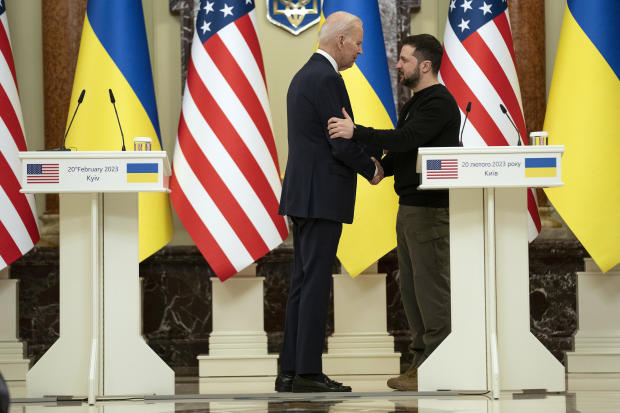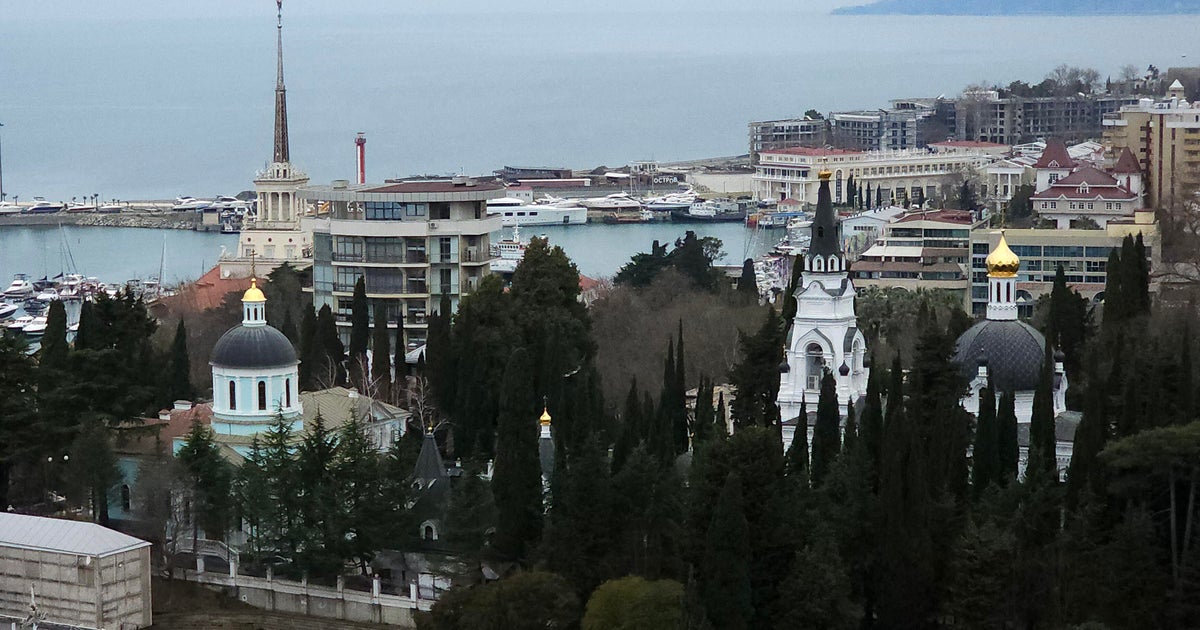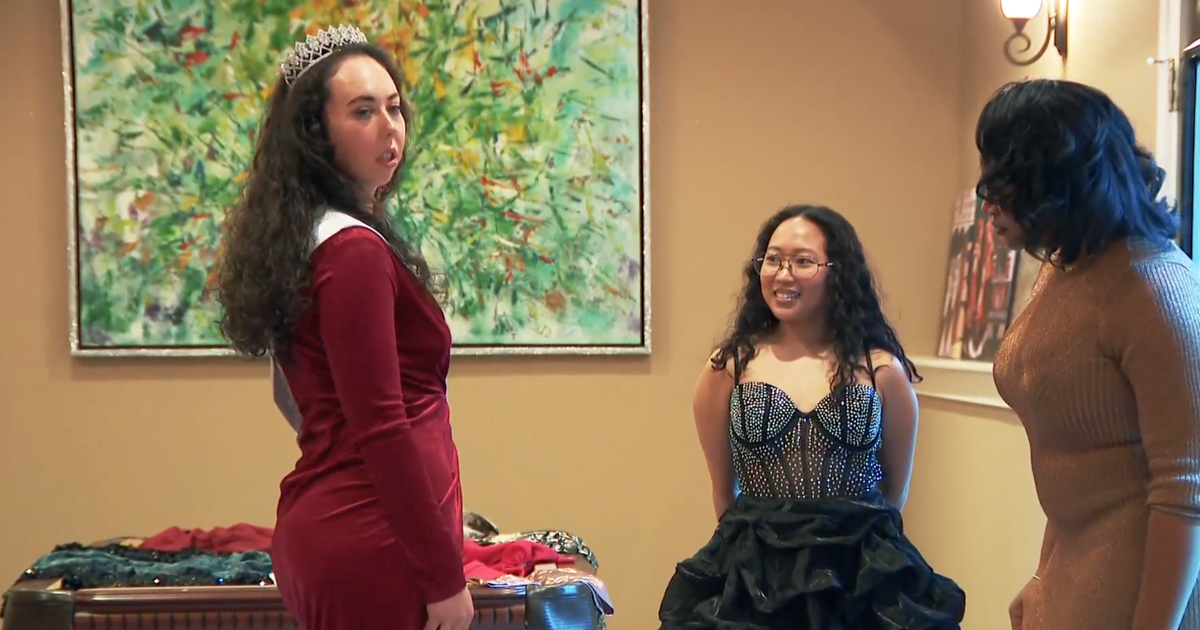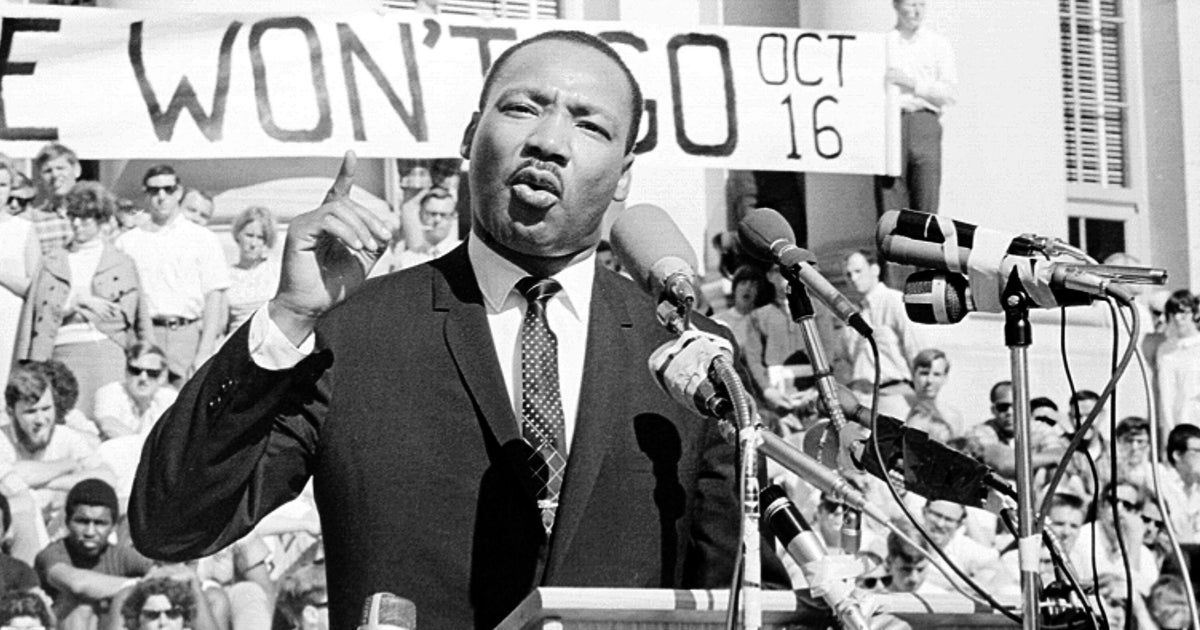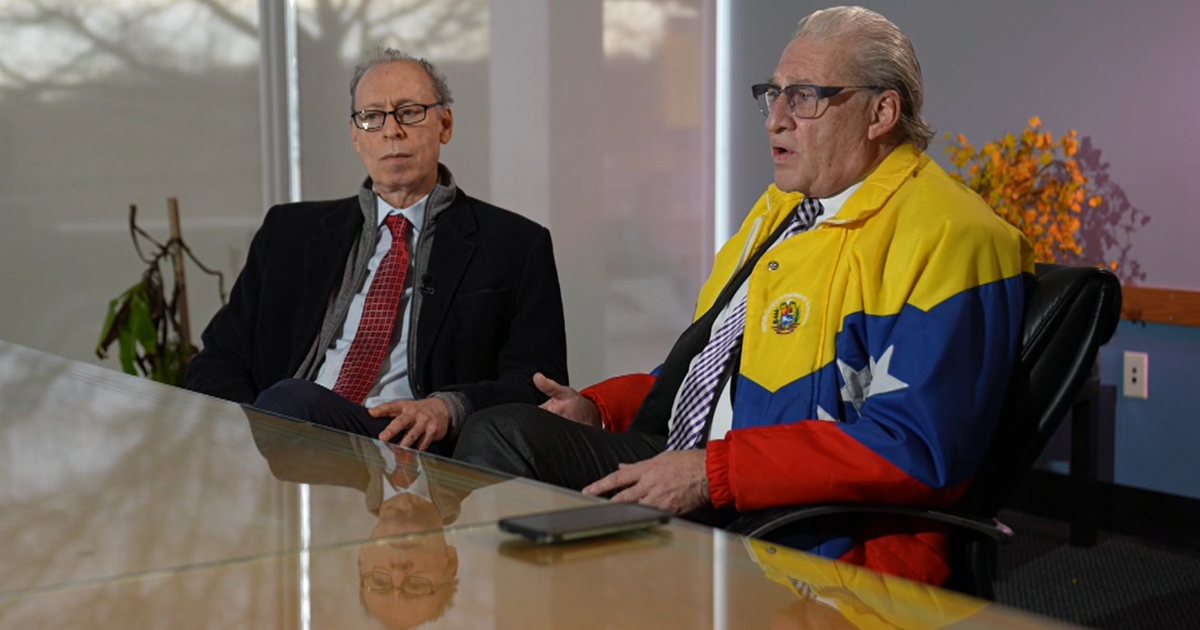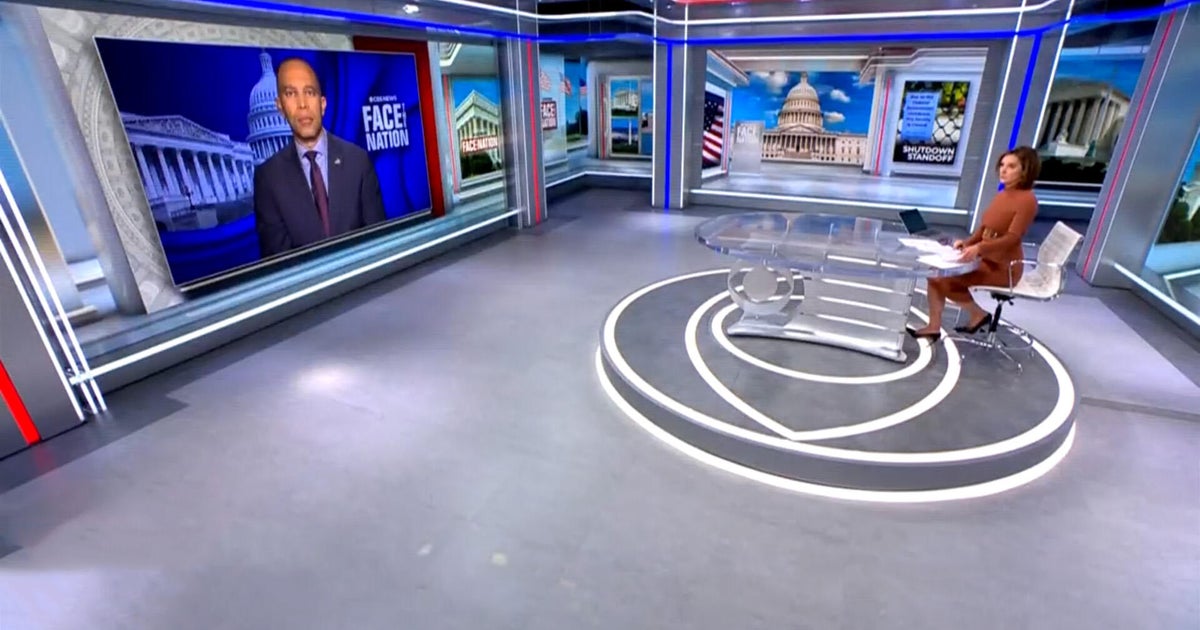Biden visits Ukraine in show of support a year into Russia's invasion, amid concern China could give Putin lethal aid
President Biden paid an unannounced visit Monday to Ukraine's capital, offering a huge show of support for the country the U.S. and its allies have helped to hold out during Russia's nearly-year-long, unprovoked invasion. Mr. Biden spent about six hours in Kyiv, much of it with Ukrainian President Volodymyr Zelenskyy, whom he promised unwavering backing and another tranche of American weapons.
"You know, one year later, Kyiv stands. Ukraine stands," Mr. Biden said while there. "Democracy stands. America stands with you and the world stands with you. Kyiv has captured a part of my heart."
Mr. Biden's visit to the region, which was to see him meet later in the day with other European leaders in Poland, comes as the world prepares to mark a full year since Russian President Vladimir Putin launched his full-scale invasion of Ukraine — and amid concerns first publicized over the weekend by America's top diplomat that China may be on the brink of providing Russia with weapons to bolster its assault.
On Monday, the U.S. announced $460 million in new support for Ukraine, including $450 million worth of arms and equipment and $10 million for emergency assistance to maintain Ukraine's energy infrastructure, according to a State Department official.
The president made the final decision to go ahead with the trip following a huddle in the Oval Office and by phone with key national security officials on Friday, White House officials said on a call with reporters after the president had left Kyiv.
The Russians were notified that Mr. Biden would be traveling to Kyiv some hours before his departure for "deconfliction" purposes, national security adviser Jake Sullivan said.
White House officials stressed to reporters that a visit from a U.S. president to an active war zone is particularly challenging when the U.S. has no military presence on the ground.
"This was a historic visit, unprecedented in modern times to have the president of the United States visit the capital of the country where the United States military does not control the critical infrastructure," Sullivan said. That required a coordinated effort from officials across the U.S. government to make it a "manageable" level of risk, Sullivan said. The president was fully briefed on each stage of the trip and the risks involved.
Mr. Biden traveled with a very small group of his closest aides, and was accompanied by only two journalists — a print reporter and a photographer, a much smaller journalistic footprint than the typical press pool that travels everywhere with the president. White House officials for now declined to describe the modes of transportation the president took to get to Kyiv.
The trip came just ahead of the one-year mark in the war. Putin ordered the land invasion and the beginning of a devastating aerial bombardment of Ukraine on Feb. 24, 2022. He sent tens of thousands of troops over the border in an attack that appeared aimed at quickly toppling Zelenskyy's Western-aligned government.
Putin's forces vastly outnumbered Ukraine's, and for months the Russians closed in on the capital city of Kyiv from several directions, illegally annexing Ukrainian territory as they went. Many expected Kyiv to fall within just days, but a year later, Ukraine is still locked in a fight for its survival.
Backed by most of the Western world — and crucially bolstered by U.S. and European weapons shipments that continue today — Zelenskyy's troops managed to turn the tide and start clawing back territory in the second half of last year.
What Putin refers to only as a "special military operation" largely stalled over the winter months, with both sides digging in along a front line that spans hundreds of miles through eastern Ukraine's industrial Donbas region, from the north to the south of the country.
"When Putin launched his invasion nearly one year ago, he thought Ukraine was weak and the West was divided. He thought he could outlast us. But he was dead wrong," Mr. Biden said in the statement released by the White House. "Today, in Kyiv, I am meeting with President Zelenskyy and his team for an extended discussion on our support for Ukraine. I will announce another delivery of critical equipment, including artillery ammunition, anti-armor systems, and air surveillance radars to help protect the Ukrainian people from aerial bombardments."
The U.S. president said his government would announce later in the week "additional sanctions against elites and companies that are trying to evade or backfill Russia's war machine."
Zelenskyy said the U.S. leader's visit was "so important to us, and we are proud of it." He thanked Mr. Biden for coming "at this huge moment for Ukraine" and for standing with his country "from the very beginning of this tragedy."
White House officials said the two leaders discussed the security and humanitarian needs of the Ukrainian people moving forward.
"We will together defend our cities and citizens from the terror of Russia," vowed the Ukrainian president.
Mr. Biden said Ukraine had borne an "extraordinarily high" cost, and "we mourn alongside the families of those who have lost loved ones in this brutal and unjust war," adding that the U.S. would continue to stand by Zelenskyy and his country "for as long as it takes."
"We'll do it," replied the Ukrainian leader, who in a tweet after their initial meetings called Mr. Biden's visit "historic" and "brave."
Over the weekend, the U.S. gave its first public airing of concerns that China could become one of the entities helping to "backfill Russia's war machine." Beijing and Moscow are close allies, but China has provided Putin with only non-lethal support during the first year of his war against his neighbors.
Sunday on CBS News' "Face the Nation," Secretary of State Antony Blinken said Beijing could go further.
"The concern that we have now is based on information we have that they're considering providing lethal support," said Blinken, without providing further detail.
On Monday, during a visit to Turkey, Blinken said it was "something that we are watching very, very closely," warning that should Beijing chose to arm Russia, there would be "real consequences," not just from the U.S. but it's international allies. Again he provided no detail on those hypothetical consequences.
U.S. Senator Lindsey Graham, who attended a regional security conference in Munich, Germany over the weekend warned China that "if you jump on the Putin train now, you're dumber than dirt... It would be like buying a ticket on the Titanic after you saw the movie. Don't do this."
Mr. Biden is said to have warned his Chinese counterpart as early as March of last year against arming Russia for its assault on Ukraine, but China dismissed the remarks from Blinken over the weekend, insisting that it has and will play only a "constructive" role in trying to end the Ukraine war.
On Monday, Chinese foreign ministry spokesperson Wang Wenbin took a tougher stance, insisting that the "United States is in no position to make demands of China."
Wang Wenbin spoke as Beijing's top diplomat, Foreign Minister Wang Yi, was expected to visit Moscow.
"China's comprehensive collaborative partnership with Russia is based on the basis of non-alignment, non-confrontation and non-targeting of third parties, and is a matter within the sovereignty of two independent countries," Wang Wenbin said Monday. "We will never accept the U.S. pointing fingers at Sino-Russian relations or even coercing us."
The American leader's trip to the region this week is not only about reassuring allies that the U.S. will continue to stand with Ukraine for as long as it takes, but also about the president convincing Americans it's the right move.
Over the weekend, the Biden administration formally accused Putin's forces of committing murder, torture and rape during the war, with Vice President Kamala Harris saying at the Munich conference that "there is no doubt" Russian forces have committed "crimes against humanity."
— Margaret Brennan contributed to this report


